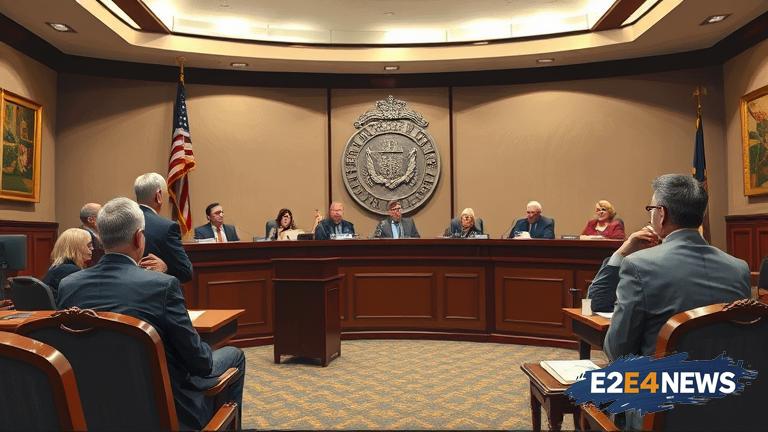The Roanoke City Council recently approved a budget for the upcoming fiscal year, marking a significant milestone in the city’s financial planning. However, the process was not without its challenges and controversies. The budget, which totals over $300 million, allocates funds for various city services and initiatives, including public safety, education, and infrastructure development. Despite the budget’s approval, some community members and council members expressed concerns and criticisms regarding the allocation of funds and the potential impact on certain city services. One of the main points of contention was the proposed increase in taxes, which some argued would disproportionately affect low-income households. Others criticized the budget for not doing enough to address issues such as poverty, homelessness, and affordable housing. The council members who voted in favor of the budget argued that it was a necessary step to ensure the city’s financial stability and to fund essential services. They also pointed out that the budget included measures to support economic development and job creation, which would ultimately benefit the community as a whole. However, the opposition argued that the budget did not go far enough in addressing the city’s most pressing issues and that it prioritized the interests of wealthy developers and corporations over those of ordinary citizens. The debate surrounding the budget was intense, with some council members accusing their colleagues of being out of touch with the needs and concerns of the community. The budget’s approval has sparked a wider conversation about the city’s priorities and values, with many calling for greater transparency and accountability in the budgeting process. Some have also raised questions about the role of special interest groups and lobbyists in shaping the city’s budget and policy decisions. As the city moves forward with implementing the new budget, it remains to be seen how the allocated funds will be used and what impact they will have on the community. The city’s residents will be watching closely to see if the budget lives up to its promises and delivers on its intended goals. In the meantime, the controversy surrounding the budget has highlighted the need for greater civic engagement and participation in the city’s decision-making processes. The city council has announced plans to hold public forums and town hall meetings to gather feedback and input from the community, which may help to address some of the concerns and criticisms that have been raised. Ultimately, the budget’s approval is just the beginning of a longer conversation about the city’s future and how to ensure that it is equitable, sustainable, and prosperous for all. The city’s leaders will need to work closely with the community to build trust and to develop a shared vision for the city’s future. This will require a willingness to listen to diverse perspectives and to be responsive to the needs and concerns of all citizens. By doing so, the city can work towards creating a budget that truly reflects the values and priorities of the community. The budget’s impact will be felt across various sectors, including education, healthcare, and public safety. The city’s schools will receive a significant increase in funding, which will be used to improve educational outcomes and to support teacher development. The city’s healthcare system will also receive additional funding, which will be used to expand access to healthcare services and to improve health outcomes. The city’s public safety agencies will receive increased funding, which will be used to enhance community policing and to reduce crime. The budget also includes measures to support economic development, including funding for small businesses and entrepreneurs. The city’s infrastructure will also receive significant investment, including funding for road repairs and public transportation. The budget’s approval has been welcomed by many in the business community, who see it as a positive step towards promoting economic growth and development. However, others have expressed concerns that the budget does not do enough to address issues such as income inequality and social justice. The city’s non-profit sector has also been impacted by the budget, with some organizations receiving increased funding and others facing cuts. The budget’s impact will be felt for years to come, and it is likely to shape the city’s trajectory in significant ways. As the city moves forward, it will be important to monitor the budget’s implementation and to evaluate its effectiveness in achieving its intended goals. The city’s residents will be watching closely to see if the budget delivers on its promises and if it truly reflects the values and priorities of the community.





